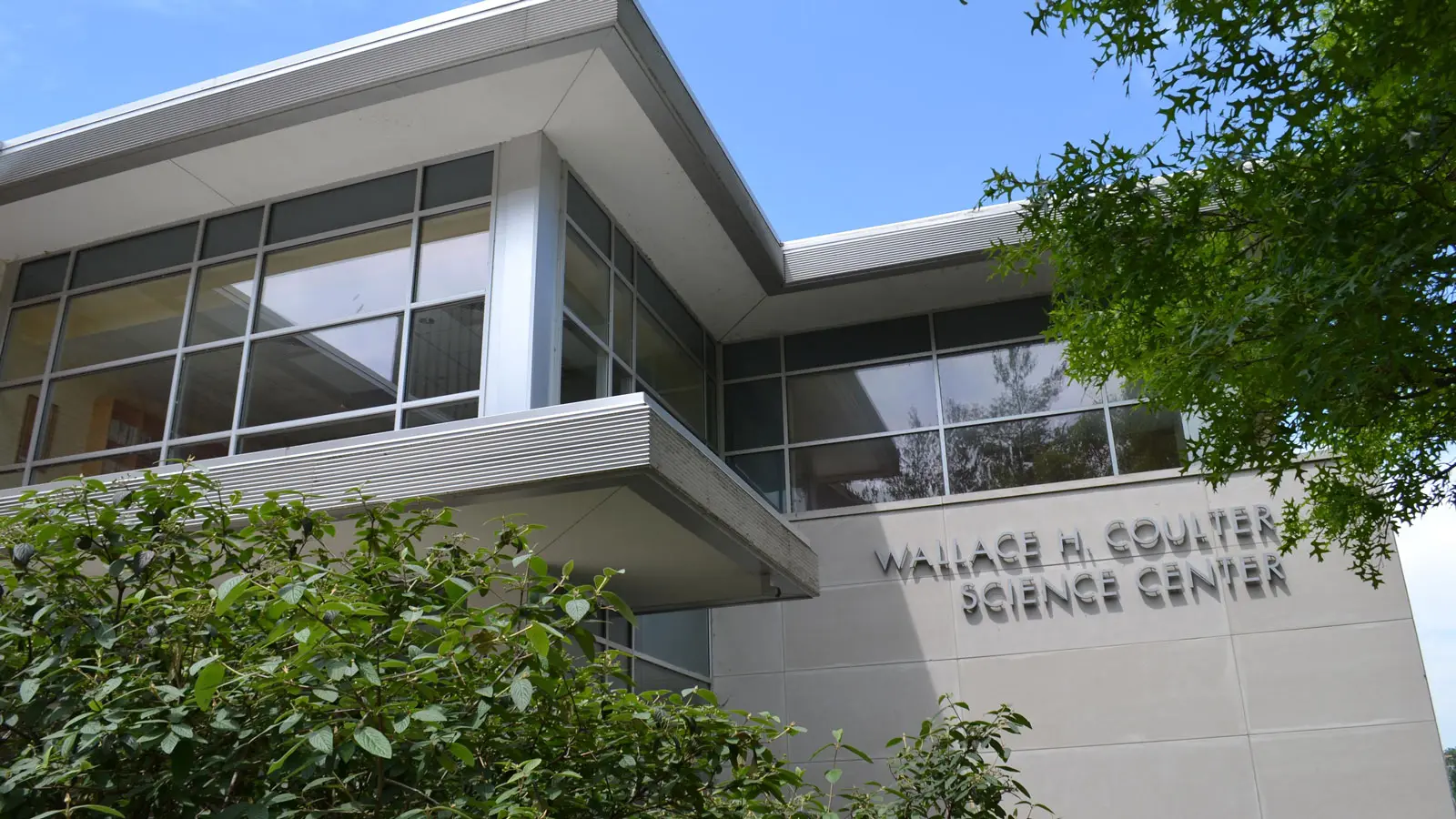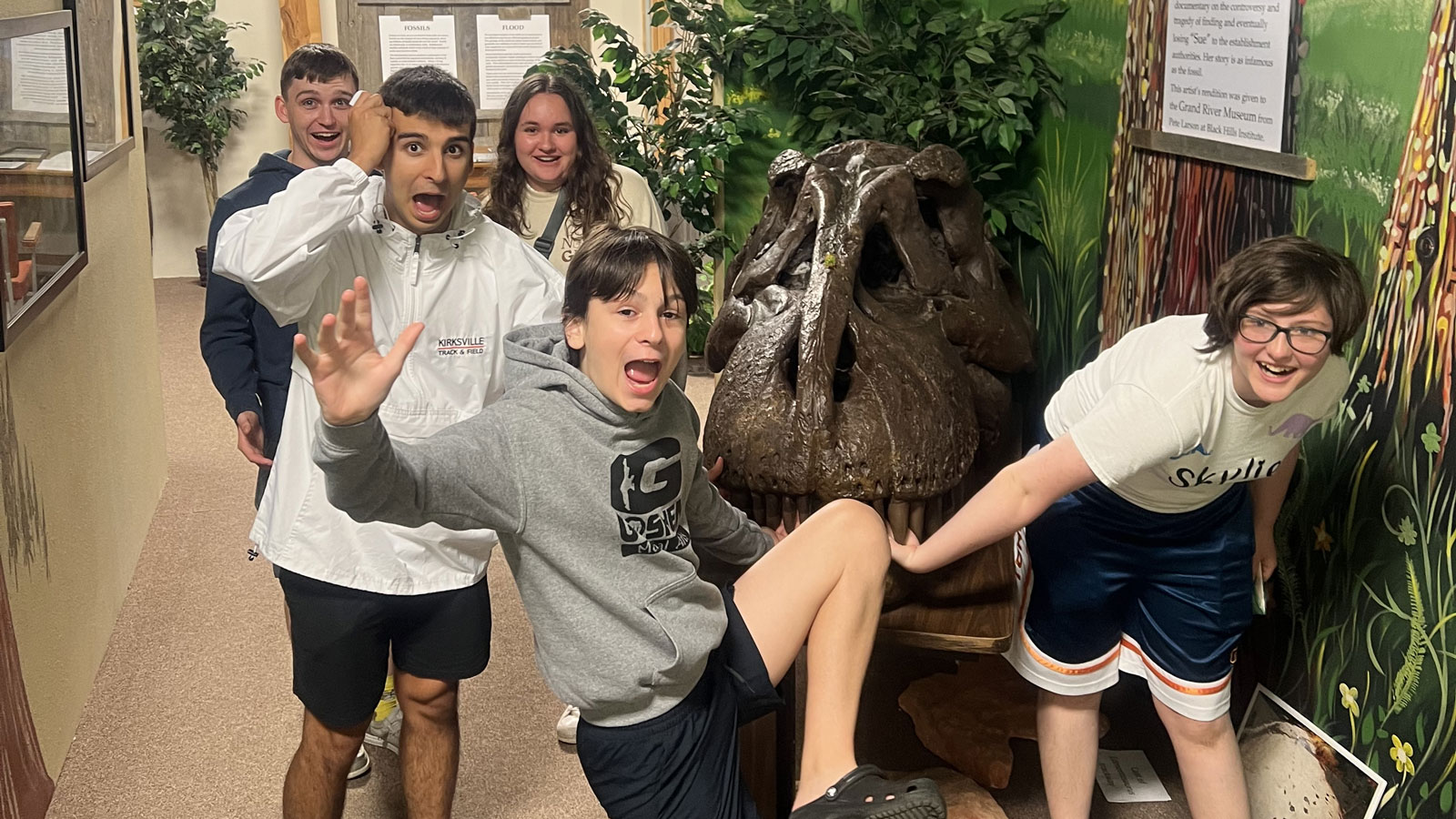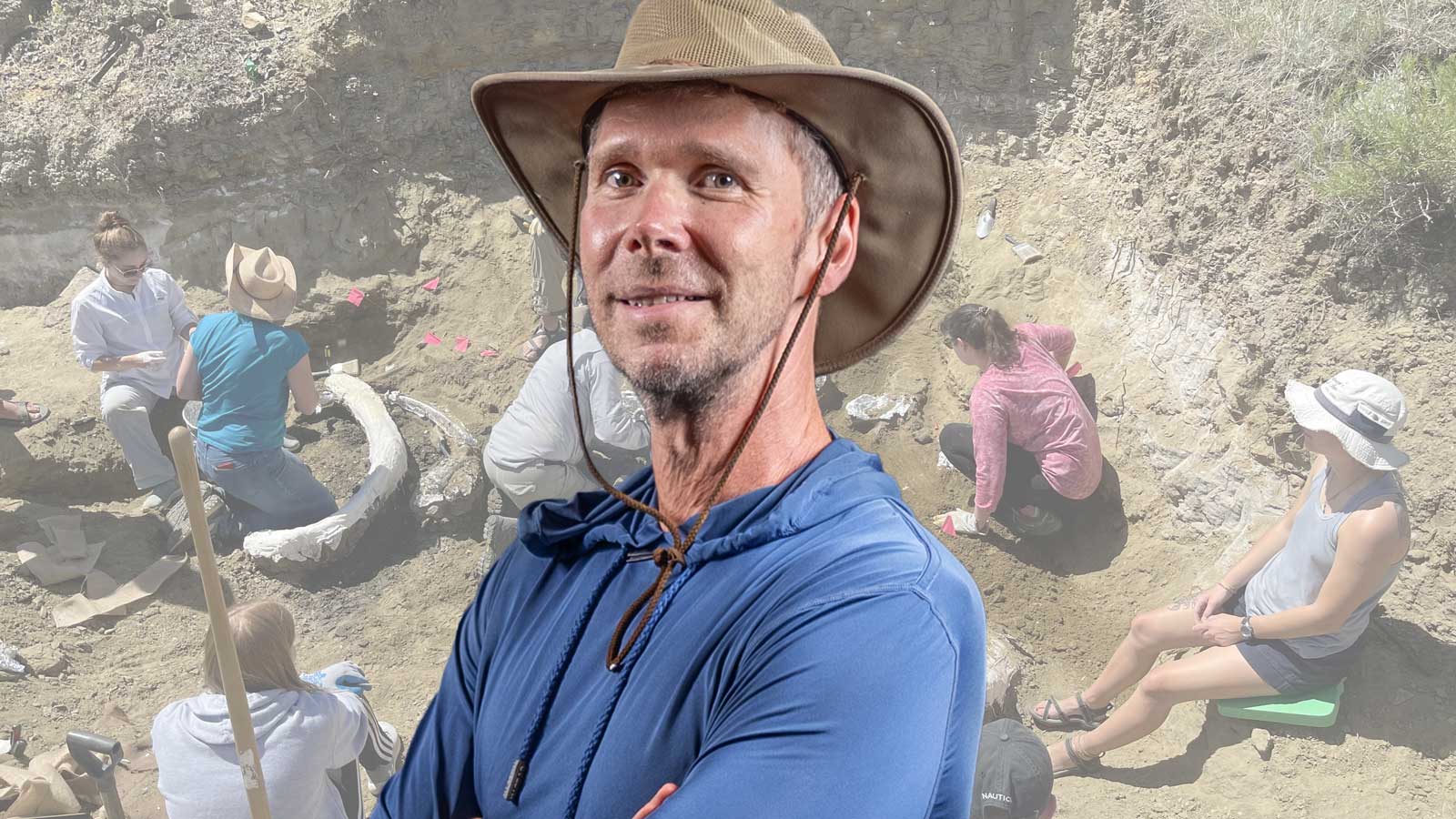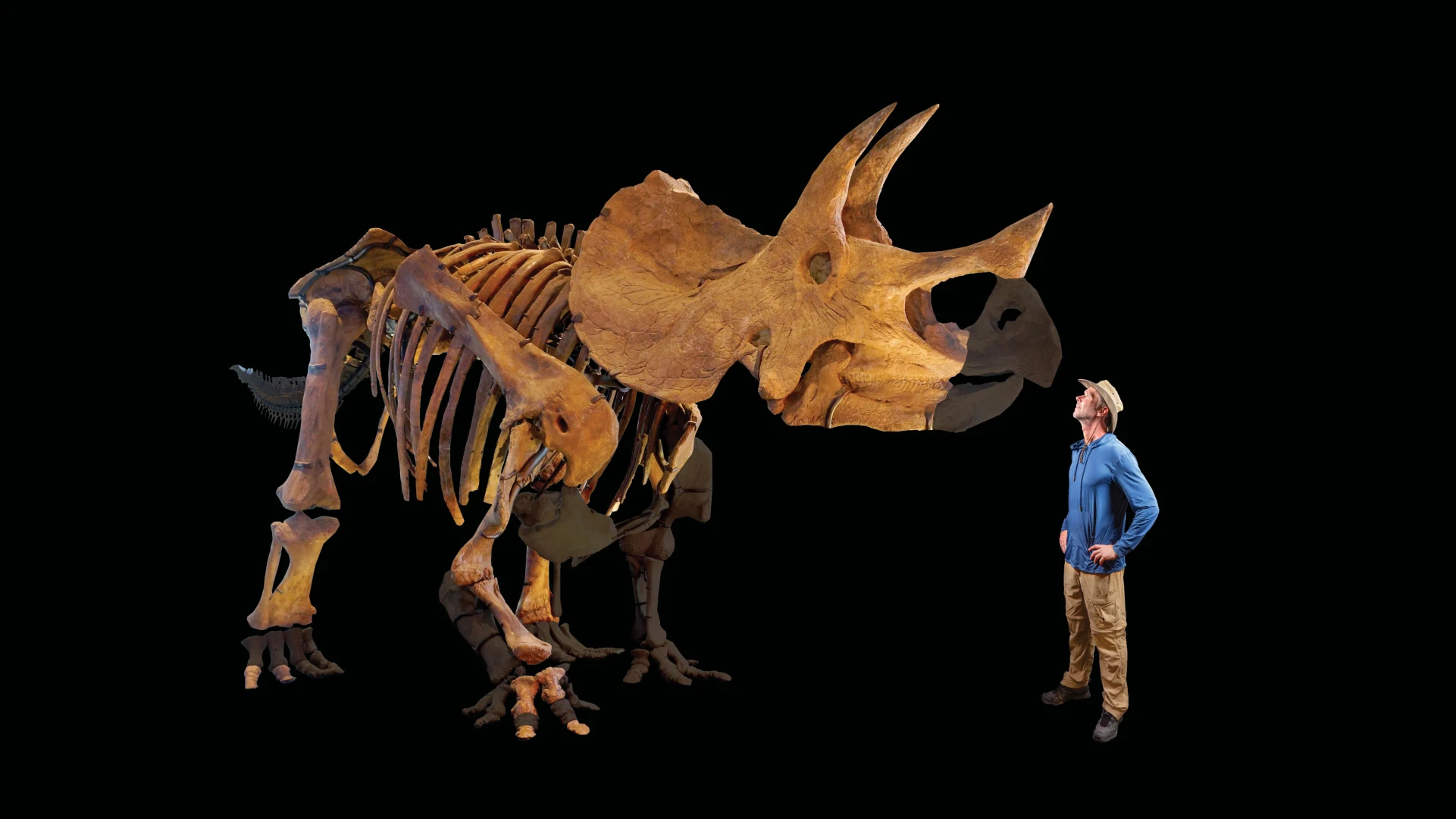
According to the U.S. Department of Labor, environmental science is becoming one of the fastest-growing professions in the United States. The major also is popular at institutions worldwide because of the exciting intersection between core scientific fields and the latest in environmental research.
Westminster recently caught up with Environmental Science Advisor Dr. David Schmidt — responsible for bringing Shady the Dinosaur to Westminster — to ask five key questions about the unique, hands-on program. Read further to see how Westminster's environmental science major stands out from what is offered at other colleges and universities.
-
What do students study in environmental science?
Environmental science is a very broad field containing elements of a variety of disciplines that include biology, chemistry, and geology. Students study the relationship between humans and the surrounding living and non-living environment. They also learn about sustainable practices that ensure the availability of resources for future generations.
-
Westminster updated its environmental science major approximately four years ago. Why did the College do that?
We wanted to be able to offer a more streamlined major that is competitive with environmental science programs from other institutions. We also wanted a major that was exciting to students as well as one that could utilize the strengths of our faculty.
-
How is the environmental science major organized?
The major includes three specific areas of environmental science in which students can major: environmental biology, environmental chemistry, and environmental geology.
-
What do most students majoring in environmental science do after graduation?
Many of our students have gone on to graduate school or work at a variety of careers that include the Missouri Department of Conservation, Missouri Department of Natural Resources, National Park System, and hydrological engineering firms, to name a few.
-
What would you tell prospective and current students about studying environmental science at Westminster?
There are more exciting opportunities for undergraduates at Westminster as opposed to a large university. This would include travel, research, and internship opportunities. Additionally, students at Westminster receive a lot more interaction and attention from the faculty: Students get to know the faculty, and the faculty will get to know the students.
This article was originally published on Westminster's news site on August 2023 and was updated in October 2024.
For More Information
For more information on Environmental Science at Westminster, please visit our website, or contact David.Schmidt@WCMO.edu or Dawn.Holliday@WCMO.edu.
Visit Our WebsitePlease Stand Up
Won't the real Shady donors please stand up … and help us care for Westminster's very own Triceratops? To assist with expenses associated with Shady's upkeep and eventual reconstruction for display, visit our Giving Page at WCMO.edu/giving. Just select "Give to Westminster Online," and under Fund, choose "Other." Be sure to drop "Shady" or "Dinosaur" in the Special Instructions box!
Donate NowExplore More About Shady



